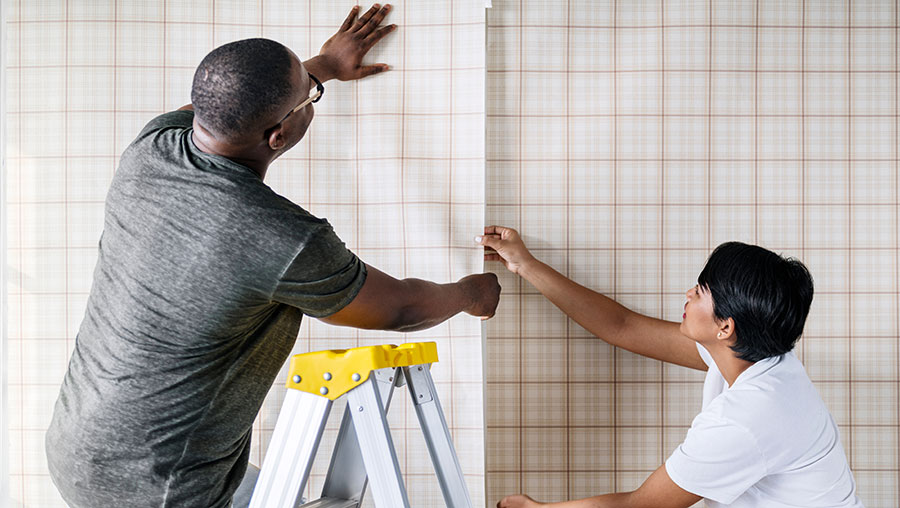
If you are a homeowner, chances are you have heard a lot about refinancing a home mortgage. But what does it mean to refinance a home mortgage? What are the benefits and why would you need to refinance? When is the right time? When it comes to financing your home and paying off a loan, it’s important to understand your options, such as finding ways to pay off your home loan faster or using it to make home improvements to increase value.
The best next stage in paying off your loan may be choosing to refinance your mortgage. Before starting the process, though, it’s a good idea to clarify what it means and why you may want to consider mortgage refinance. Solarity Credit Union can go over your options with you and help you determine when and why it may be a good choice and how you can apply it.
Defining mortgage refinance
What does it mean to refinance a home mortgage? Essentially, refinancing means you are replacing your old mortgage with a new one. It’s referred to as “refinancing” because a lender pays off your old mortgage with a new mortgage.
You can obtain a mortgage refinance by applying for a refinance with your existing lender or with a new lender. Refinancing happens when a borrower’s repayment status is re-evaluated and changes are made to the terms of an existing loan.
Typically, a borrower chooses to refinance in order to lower their interest rates or make changes to the terms of their loan, such as obtaining a more favorable payment schedule or shortening the length of the loan. Homeowners tend to refinance when interest rates fall, though they may choose to refinance for other reasons. Below are some of the benefits of mortgage refinance and how you can take advantage of them.
Lower interest rate and monthly payments
One of the main reasons borrowers choose to refinance is to get a lower interest rate on their loans. Mortgage rates fluctuate, which means they can rise or fall from year to year. When interest rates decrease, it may be time to refinance and take advantage of a lower rate. Typically, when the interest rate goes down, monthly payments go down, too. This means that over the life of the loan, you will end up paying less money.
Another advantage of refinancing is avoiding making further PMI (private mortgage insurance) payments. If you bought your house with less than 20% down, then your home loan may include monthly PMI. This insurance is intended to protect a lender in case you default on a loan and is included in the monthly mortgage payment. Certain loan types, such as FHA loans, include PMI for the life of the loan, despite the increase in equity. If you want to get rid of these monthly PMI payments after your house has enough equity, you can refinance your mortgage to receive new terms.
Change loan products
There are a number of home loan options available. Depending on your circumstance when you first purchased your home, you may have been limited in what you qualified for, or maybe your circumstances at the time favored a certain type of loan but have changed and you would now benefit from a different loan. This is especially true if you started with a small down payment or had a lower credit score and could not qualify for a loan with better rates and terms. If your credit score has improved, you may qualify for a different loan.
There are many types of mortgages available: conventional, fixed-rate, adjustable-rate, zero-down, jumbo loans and so on. Each loan product has its advantages and disadvantages. The different terms of these loans affect the interest rate you pay and the length of your loan. If your current loan has terms that are no longer advantageous, you can refinance your mortgage and switch loan types. This could mean moving from a jumbo loan to a conforming loan or from an FHA loan to a conventional loan. In order to do this, you will need to refinance.
The biggest motivating factor for changing loan products may be to simply pay your home off faster.
Tap into your home’s equity
Aside from paying off your loan faster, you may want to refinance so you can us the equity you’ve built in your home. Though a cash-out refinance may not help you pay off your loan sooner, it will make funds available for important projects such as home improvements or repairs. These are big expenses you may not have the cash for, but spending the money will increase the overall value of your home. A cash-out refinance can also help you purchase an investment property or second home by giving you the funds to make the down payment.
Consolidate multiple mortgages
You may also choose to refinance to consolidate multiple mortgages. Second mortgages typically have higher interest rates that are adjustable. This can make them difficult to pay off. Consolidating to one loan may save you money and make it easier to manage debt.
If you are ready to refinance or need help deciding if it’s the best option for you, consider partnering with Solarity Credit Union. We understand that life evolves, and so can your home loan. Whether you are looking to lower your monthly payment, shorten your term, cash out equity or consolidate your debt, we are here to help. Contact us today for competitive rates and flexible terms.
Owning a home can be an expensive investment, but there are ways to make this investment more profitable and shorten the time and money it takes to own it outright. By refinancing your home mortgage, you may be able to achieve this goal faster.
What's your Solarity story?
We're on a mission to tell the stories of our members and how they are living their best lives. Do you have a Solarity story to share?
